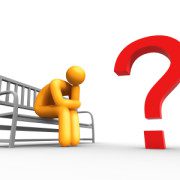What’s their “why”?
I’ve written over and over about the importance of knowing why you want to build your own book of business. Why gets to the root of your motivation. It will carry you through the difficult times when business development work seems like too much on top of your billable and other responsibilities. It will give you the reason to persist even when your effort isn’t yielding the results you’d hoped. Most importantly, it gives you a way to measure whether what you’re doing is moving you toward satisfaction or away from it. If it’s been a while since you’ve given this some thought, I’d encourage you to spend some time with your why soon.
But today, let’s focus on the why your client or potential client holds. Their why matters on two levels:
- Level One: the substantive purpose (what they hope to accomplish through the work you’ll be doing) For example, if you’re a litigator and your client or potential client is contemplating filing a breach of contract claim against a supplier, the substantive why is addressing an issue (quality, cost, etc.) that arguably violates the terms of the agreement. If a criminal defendant is considering hiring you, their fervent desire is for you to show that they aren’t criminally liable for their actions. This is the kind of why we learned about in law school, it’s the why that determines the strategy we use to approach a matter, and it’s the kind of why that we focus on day in and day out.
- Level two: the motivation that underlies the matter, which may speak to a larger strategy or an emotion For example, the breach of contract claim might be lodged to clarify rights and responsibilities in an ongoing relationship, it might be lodged to terminate a relationship, or it might be designed to seek recompense for problems in a relationship that’s irretrievably broken. The criminal defendant might want simply to avoid liability, or they might have taken the steps they did because they want to test the validity of the underlying law.
The secondary why often plays the stronger role in business development. Why is this business development client/potential client approaching you to discuss this matter? What do they hope to accomplish through the representation?
When you understand the motivation behind the contemplated action (or the desired secondary outcome in the case of a litigation defendant whose first goal is obviously to avoid liability), you’re better positioned to demonstrate that you understand your client/potential client. You’ll be able to present your relevant experience and to discuss the approach you might take considering the underlying motivation. You can slant the conversation toward the underlying desire. Sometimes the desire won’t be attainable or shouldn’t be pursued (revenge fantasies, for example), but when you demonstrate you understand the business development client/potential client’s motivation, you let them know they’ve been heard and that you’ll work toward their objectives as best you can.
The why also comes into play when a potential client expresses reservations about the cost of hiring you. When you understand their motivation underlying the matter, in addition to explaining your methods of cost containment, you can connect the motivation to the cost of the desired outcome. Budget is often an issue for a routine matter, but if the motivation underlying a matter is particularly critical, you can use that to explain why the costs are as they are. (To be clear, I’m not suggesting a premium for a matter that’s particularly important; this is simply a method to help explain the budget you might propose.)
Finding your client’s/potential client’s why is as simple as asking questions. What would you like to take away from this transaction? What matters most to you about this? Why would you or wouldn’t you consider settlement, if we can find common ground? In negotiating this deal, is there anything you must have or can’t agree to give up?
Both business development and successful representations require you to understand your client’s motivation. Start laying the groundwork when you meet new business development contacts. As you’re learning about them and (where appropriate) their business, ask questions that will help you to understand their values, their emotional temperature, and the reason they do the things they do. The more you know, the better you’ll be able to position yourself for BD, and the better you’ll be able to represent and/or manage your clients and their matters.













Leave a Reply
Want to join the discussion?Feel free to contribute!